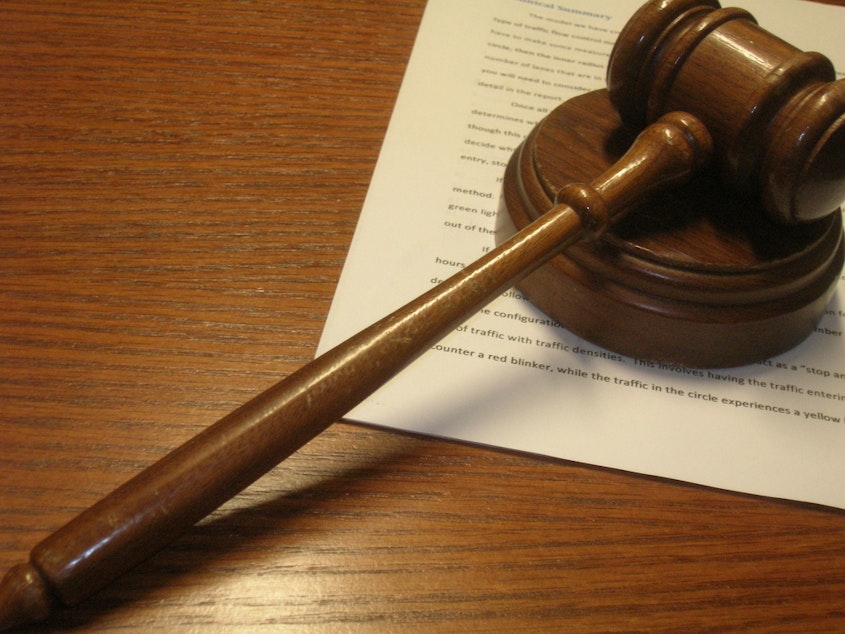Justice Gap For The Low Income Has Widened In Washington

There's a justice gap in Washington state, according to a study published Thursday. It says that low-income Washington residents face multiple civil legal problems, but few can afford the help they need.
TRANSCRIPT
Compared to 2003, the last time a study like this one was done, the average number of legal problems a low-income Washingtonian is facing has tripled.
John McKay: "It's like sitting under a waterfall. So many people are coming with more complex problems than ten years ago, that its clear we have to provide some additional support to them."
McKay is a former U.S. attorney and currently a law professor at Seattle University. He said the legal problems can be complex, and they're often intertwined -- like for Teal Victoria.
Sponsored
Three years ago Victoria was in an abusive relationship with the father of her newborn daughter. She left that relationship, which meant she needed a protection order and a parenting plan.
Then, on the day she was supposed to be in court, Victoria got some bad news.
Victoria: "My daughter was diagnosed with stage four brain cancer, so I didn't go to my court case because my daughter had an 11-hour brain surgery to remove the tumor. So that opened up the need for different legal assistance."
Victoria was able to get help from Jennifer Brugger, a lawyer with Northwest Justice Project. She was lucky - at least as far as getting legal help is concerned. Brugger said that Northwest Justice Project sees more people seeking help than they can manage.
Victoria: "It's just something that we face every day, where we're able to help this person, but we can't help five of these other people."
Sponsored
McKay said he's heard the same thing from legal aid lawyers across the state. McKay said there should be about one civil aide lawyer for every 5,000 residents. Washington has one per 12,000 residents.
The study was performed by Washington State University and commissioned by the Washington State Supreme Court.
Washington Supreme Court Justice Charles K. Wiggins said that this justice gap -- as they call it -- needs a "thoughtful, significant, and coordinated response."
